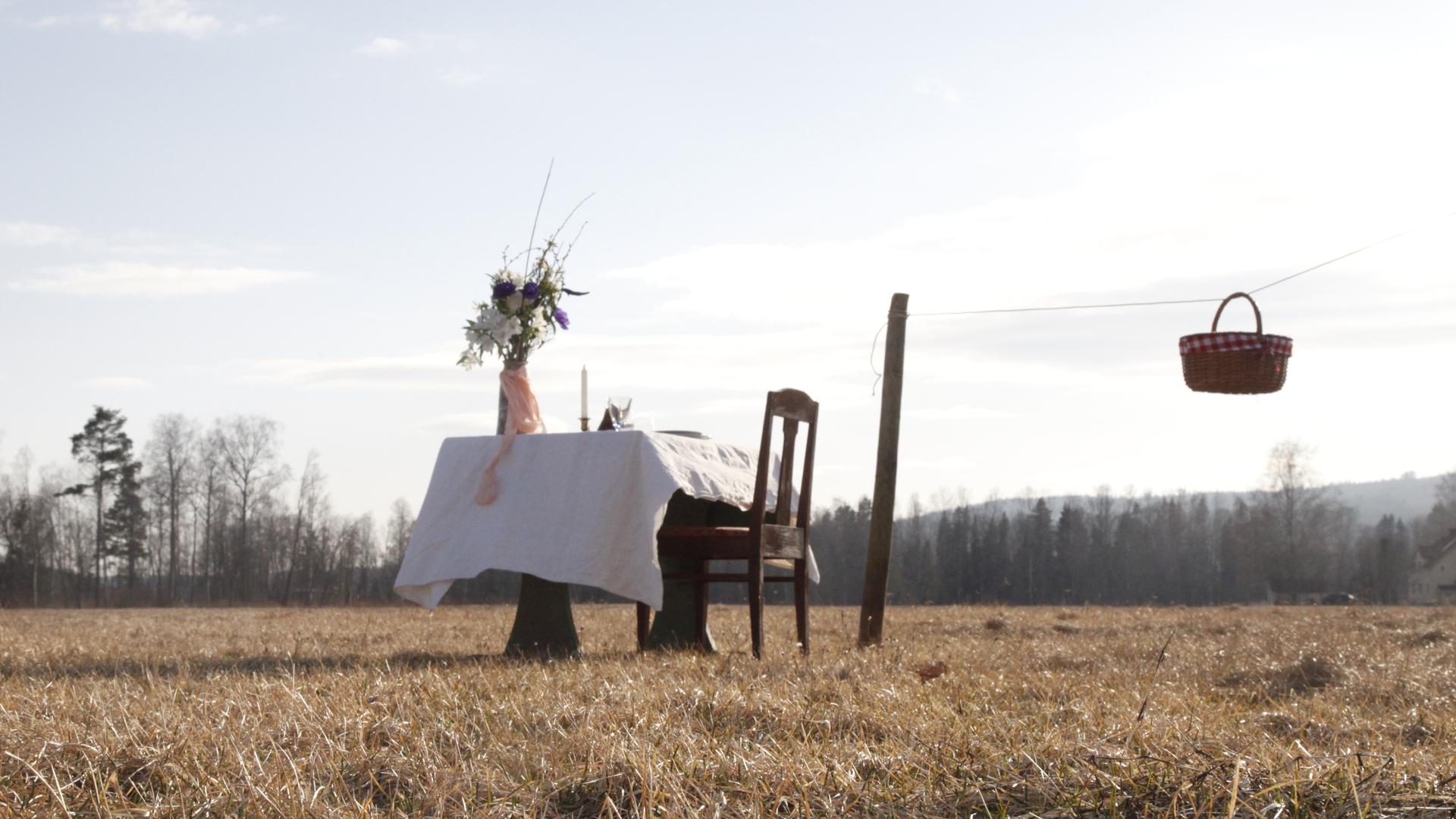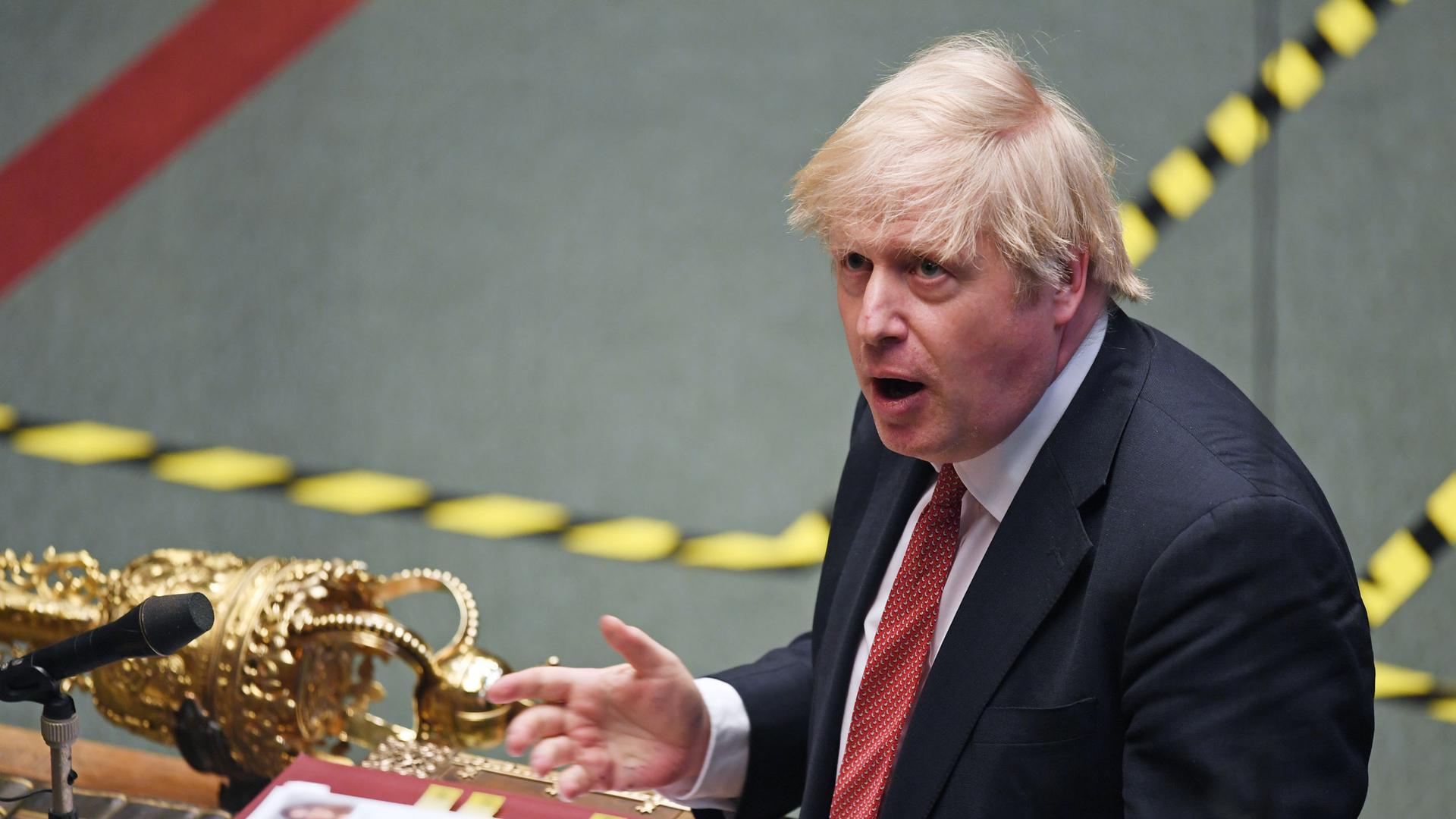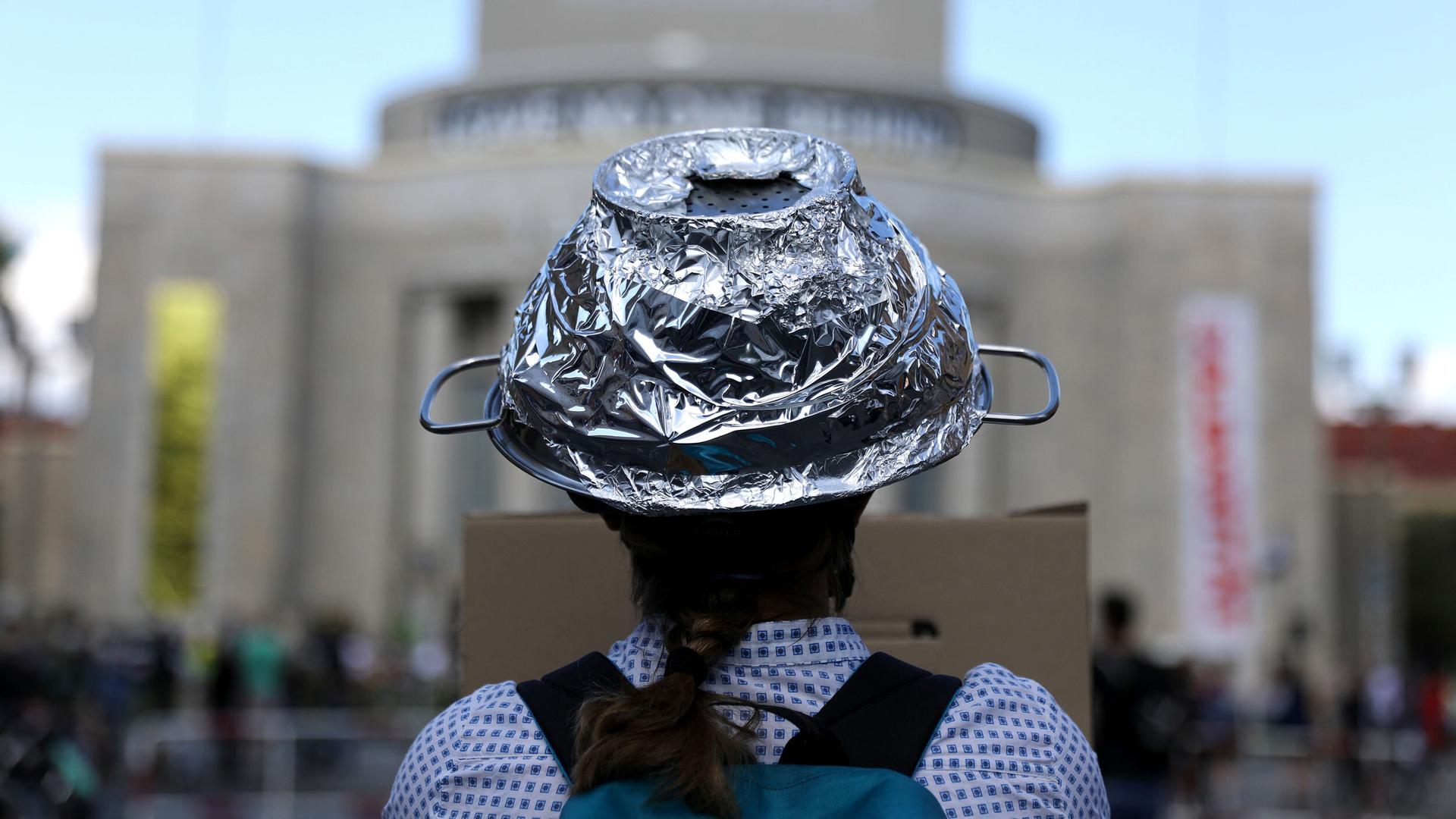The risks of reopening too early; Afghanistan suffers attack on maternity hospital; Researchers in Senegal are developing coronavirus home test kit
A woman attends a protest of conspiracy theorists and other demonstrators at Rosa Luxemburg Platz, amid the spread of the coronavirus, in Berlin, Germany, May 9, 2020.
Top of The World — our morning news round up written by editors at The World. Subscribe here.
Germany has been a relative success story in the fight against the novel coronavirus. But as the country is working to reopen, the number of new infections is ticking upward. Chancellor Angela Merkel has urged Germans to continue following social distancing norms and is considering applying the “emergency brake” to reinstitute restrictions. And anti-lockdown protests, partially instigated by conspiracy theorists spreading false information, have concerned German lawmakers.
Meanwhile, the US has reported the most coronavirus cases in the world, with more than 1.3 million infections and more than 80,000 deaths. Still, states are relaxing restrictions. Dr. Anthony Fauci, the top US infectious disease expert, is expected to warn of “needless suffering and death” over premature reopenings during his testimony in front of a Senate committee today. (Watch the testimony here.)
And, some experts have suggested a strategy that “exploits the coronavirus’s weak spot“: a rotating schedule of two-week work cycles.
From The World: India begins to ease restrictions on areas with no new coronavirus cases
And: ‘Don’t ask me. Ask China’: Trump clashes with reporters then abruptly leaves press briefing
Afghanistan suffers attack on maternity hospital
Gunmen attacked a maternity hospital run by Doctors Without Borders in Kabul, Afghanistan, killing at least 14. There have been several attacks in Kabul recently, for which ISIS has claimed responsiblity. The country is also facing violence from the Taliban, despite efforts at US-led peace talks.
And in Russia, five coronavirus patients have been killed after a ventilator caught fire in a St. Petersburg hospital.
Also: France mandates masks to control the coronavirus. Burqas remain banned.
Researchers in Senegal are developing coronavirus home test kit
In Africa, there are around 50,000 confirmed cases of the coronavirus, though experts suspect that number to be vastly underreported due to lack of widespread testing. Enter one team of researchers in Senegal that is working on a solution for the entire continent. It will cost around just $1, and the entire test — results included — can be done at home. No need for a lab with fancy equipment.
From The World: With test kits so scarce, doctors in Yemen are flying blind
Women leaders eschew ‘macho-man’ politics in COVID-19 response
New Zealand is “halfway down Everest,” Prime Minister Jacinda Ardern recently said of the country’s battle with the coronavirus. New Zealand, Taiwan, Denmark, Finland, Iceland and Norway all have notably low rates of fatalities and Germany stands out in central Europe for its low death rate. The seven countries have something else in common: All are led by women. Is it a coincidence or are women leaders better at managing the coronavirus?
Amsterdam’s recovery plan: ‘Doughnut economics’ for people and planet
No, Amsterdam’s pandemic recovery plan isn’t centered around sweet pastries for everyone. And it’s not about growing the economy, either. Rather, it’s about making the city better for people and the planet. The city is looking to “doughnut economics,” a framework created by British economist Kate Raworth.
In her diagram, the doughnut hole contains the social resources we lack — like safe housing, adequate food, and fresh water. Radiating outside of the doughnut are the environmental issues we are daunted by — like pollution and carbon in the atmosphere. It’s the doughy ring in the center of the diagram that represents the sweet spot, where there’s a balance of the things we need.
From The World: ‘Reckoning day’ could be ahead for airline industry facing coronavirus challenges
And: Trump dismantles environmental protections under cover of coronavirus
Table for One in Sweden is an ode to solo dining

The future of restaurant dining after the coronavirus is likely going to look very different than it did in the past. Picture waiters wearing masks, disposable menus — and maybe even plastic dividers between tables.
But at one new pop-up restaurant in Sweden, social distancing is exceedingly easy — in fact, it’s the goal. Bord för en, or Table For One, in Ransäter, Sweden, is just one table, and one chair in the middle of a meadow.
Morning meme
For you anime lovers out there, Studio Ghibli is offering lessons online on how to draw one of its beloved characters.
In case you missed it
Listen: Confusion over the UK’s plan for lifting coronavirus restrictions

British Prime Minister Boris Johnson has set out his exit strategy for how the UK comes out of lockdown. But not everyone is backing it, including leading lawmakers from Scotland, Wales and Northern Ireland. And, when the globe first learned about the new coronavirus emerging in China, we were basically told to watch out for two things: a fever or a persistent, dry cough. But, a lot has changed since then in terms of what we know about the symptoms of COVID-19. Also, “Table for One” is a new restaurant pop-up in Sweden with just one table and one chair in the middle of a meadow — perhaps ideal for social distancing.
Don’t forget to subscribe to The World’s Latest Edition podcast using your favorite podcast player: RadioPublic, Apple Podcasts, Stitcher, Soundcloud, RSS.
